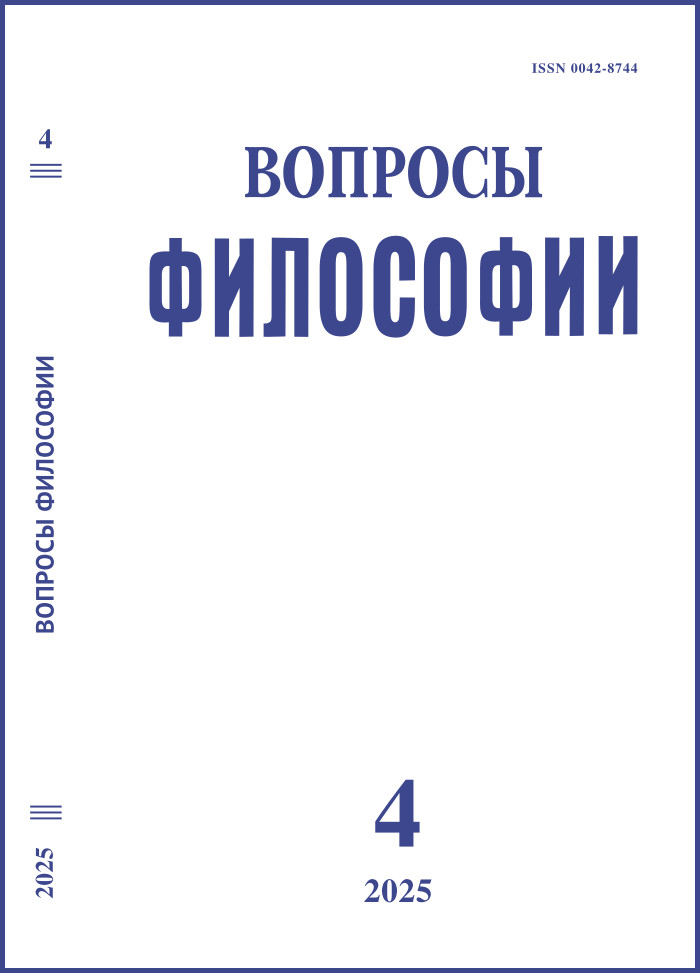“Hidden Platonism” and Hermeneutics of F.M. Dostoevsky’s Novels in Vyacheslav Ivanov’s Philosophical and Critical Legacy
DOI:
https://doi.org/10.21146/0042-8744-2025-4-138-147Keywords:
Russian religious philosophy, philosophical criticism of Vyach. Ivanov, novels of F.M. Dostoevsky, Plato’s philosophy and mythology, Platonism as a form of religious-philosophical and artistic thinking, Christian Platonism, philosophical hermeneuticsAbstract
This article is devoted to the problem of the influence of Plato’s philosophy on the methodology and metalanguage of Vyacheslav Ivanov’s philosophical and critical research, which analyzed F.M. Dostoevsky’s novels. “Hidden Platonism” can be considered as a principle that defines Dostoevsky’s religious-philosophical and artistic thinking as interpreted by Ivanov. Plato’s tradition in hermeneutics development in the 19th–20th centuries is considered, especially in the works of F. Schleiermacher, H.-G. Gadamer and M. Heidegger. The research of Ivanov’s analysis of works by Dostoevsky proves to demonstrate that Ivanov used some principles of Plato’s mythopoetics and philosophy for the hermeneutic analysis of the Russian writer’s novels. It demonstrates that Ivanov’s interest in the Dialogues of Plato was based on various sources such as Christian Platonism, Russian religious philosophy, works by V.S. Solovyev and others. The paper analyses the materials from Ivanov’s personal archive, which show his knowledge of Plato’s dialogues Timaeus and Phaedrus. Ivanov’s articles, lectures, insufficiently studied materials and the book Dostoevsky: Tragedy – Myth – Mysticism (Tubingen, 1932) are explored. Based on the principles of Plato’s “anamnesis” and categories of “ascent – descent” he makes an analogue of the hermeneutic circle as a method of metaphysical thinking and text interpretation. He uses some of Plato’s myths about soul, beauty, cave and Eros as forms of circumlocution. Christian Platonism for Ivanov is a special way of interpretation of Dostoevsky’s religious consciousness, for whom the idea of salvation was crucial. Ivanov
enriches his hermeneutic analysis with mythopoetic excursions and images of Plato’s dialogues, using the ideas and concepts of the ancient Greek philosopher in the structure of religious and philosophical discourse.

